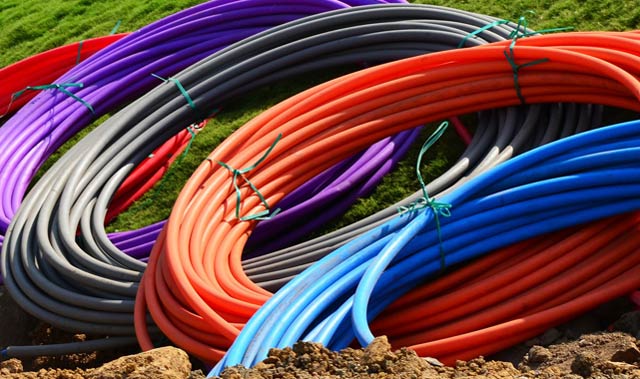
Fibre is the way to go. That is not up for debate. Quicker downloads, less buffer time when streaming and seamless online video chats are all perks of having faster Internet. So, for those who can afford to have fibre installed, it’s a no-brainer.
Or so you would think.
There appears to be no shortage of troubled households whose dreams of getting fibre to the home (FTTH) have been replaced with nightmares of power cuts and water outages due to damage to underground infrastructure when digging trenches to lay fibre-optic cables.
According to Dark Fibre Africa chief strategy officer Rashaad Sha, these disruptions are an inevitable part of the process. So, perhaps getting fibre is not a decision that should be taken lightly, or quickly.
“Residents need to practise meditation and patience because, irrespective of their circumstance, there are bound to be disruptions,” says Sha. “No fibre provider should be telling residents that there aren’t going to be any disruptions or that there will be no incidents because it’s impossible to know.”
Sha says interruptions happen because companies sometimes hit a service while digging, which may not have been identified by the service provider when the fibre companies showed them where they had planned to dig.
“Sometimes they may be able to identify the location of their infrastructure but they have no idea what the depth is. Or perhaps because the contractors that built that infrastructure did not follow those specifications,” says Sha. “The specs may have said to lay the water pipe one metre down, for example, but there’s no way of knowing how far down the water pipe was actually laid.”
Nevertheless, he adds that there seems to be a lot more disruption, especially in the suburbs, which he says boils down to the increasing demand for fibre and the sheer concentration of underground infrastructure, compared to businesses areas. But it is also because of the proliferation of fibre companies, some of which have little experience.
So, what about the new fibre company with less than three years in the business that could be operating in your suburb?
Says Sha: “I can’t say for certain that the process they are following is as robust as what we follow… We x-ray each road that we build on. We don’t just go with what the utility service providers tell us. But even then there are no guarantees.
“What you need to remember is that [many of these FTTH providers] need to build the fibre network as cheaply as possible in order to make the business case work. Something is bound to break when you’re building it as cheaply as some of them are doing it.”
Damage to roads and pavements
Environmental sciences lecturer at the Unisa Tracey McKay, says another problem with fibre is the state in which roads and pavements are left in the aftermath. Fibre companies seldom return them to the state they were found in. In addition, she says it seems each fibre company gets permission to dig, so the same set of pavements is dug up several times.
“The roads are dug up and left open so water can penetrate the subsurface,” she says. “It’s a serious situation because it compromises the strength of the road, which is often badly replaced (you see compressions/depressions developing in the road) or not replaced at all in the case of pavements.

“The companies appear to be taking advantage of the fact that there is a jurisdiction issue over pavements between City Parks and the Johannesburg Roads Agency (JRA) and because of this, neither JRA nor City Parks is overseeing the repair of the pavements, thus, with no oversight, costly repairing/reinstatement doesn’t happen.”
McKay suggests that companies use trenchless or no dig technology, which produces less waste, less disruption and generates better, more skilled jobs.
- This piece was originally published on Moneyweb and is used here with permission

